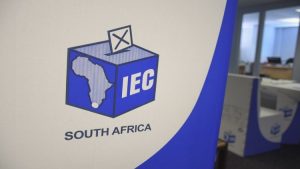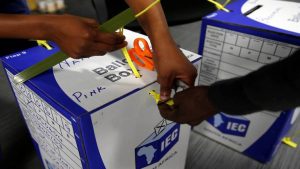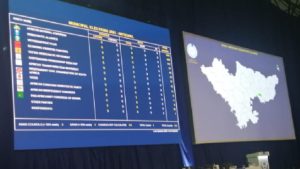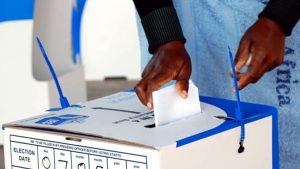The Constitutional Court has given a green light to the Electoral Amendment Act 73 of 2023 as assented to law by President Cyril Ramaphosa earlier this year. Despite opposition and criticism of the amendment, the apex court has found that the allocation of 200 seats for regions and 200 seats for the national votes in the National Assembly does meet constitutional muster.
The court did, however, reduce the proposed number of signatures required for the registration of independent candidates from 15 percent of the regional seat quota (based on the previous election result), to just 1 000, for both national and provincial elections. This means South Africans can now prepare themselves to vote for individual candidates in the National and Provincial Elections in 2024.
The Electoral Commission (IEC), in collaboration with the Human Science Research Council (HSRC), has released the findings of a study indicating that South Africans are not keen on voting for independent candidates in the next elections. The study found that 30% of the participants did not care whether there are independents on the ballot, while less than 25% said they were more likely to join the queues because of the new feature of independents.
However, only 5% showed a keen interest in casting their votes for the independent candidates. This corroborates the results of the Local Government Elections, in which only 52 (1.16%) of the 4468 ward seats were won by the independents in the November 2021 polls. Dr Ben Roberts, Research Director in the Developmental, Capable and Ethical State (DCES) at the HSRC also revealed that only 13% of the population had shown interest in politics, whilst 28% said they still believe in voting.
The survey results also paint a bleak picture of people’s confidence in South Africa’s political parties. 31% of the respondents said they believed that all political parties behaved the same once voted into power, which could suggest that they don’t necessarily differentiate between the different messages of the various parties.
Service delivery is an issue that continues to take centre-stage in decision-making in the country, as Eskom load-shedding, and a lack of access to water and other necessities continues to diminish the trust between citizens and the almost 30-year-old democracy. HSRC researcher, Samela Mtyingizane, presented study results on “The diverse attitude of young South Africans who plan to abstain or are uncertain about voting, in the NPE 2024”. The study acknowledges that electoral democracy is in recession globally, and that a focus on youth – the future leaders of the country, is necessary to gauge the future of democracy.
With youth unemployment at 43.4%, Mtyingizane suggests that many may choose to abstain from next year’s poll. There is a “deep discontent with democratic and leadership performance, as only 2% are satisfied with democracy and 3% are satisfied with political leadership”. In the study, 82% of young people showed dissatisfaction with democracy, and 87% were not happy with political leadership.
The study reveals that South Africa’s youth are divided on the importance of voting. 42% felt it is not an important factor, while 58% felt it is still an important component of democracy. Young people have also shown little interest in the presence of independent candidates on the ballot, as only 23% were positive about it. The study also warns that youth are heterogenous and the characterization of young South Africans as apathetic is problematic and unhelpful. It concludes that convincing them to turn out on Election day would require responding to their material needs: decent work opportunities, quality services, and capable ethical leadership. That is all beyond the IEC mandate but speaks to the accountability of the political system.
Professor Collette Schulz-Herzenberg from the University of Stellenbosch warns that youth apathy is not the only challenge facing the NPE2024 as African National Congress (ANC) voters are leaving the party and choosing not to vote as they can’t find new political homes. She says their absence will affect voter turnout and consequently the viability of the country’s democracy. “For most eligible voters in South Africa, they understand the importance of voting but abstaining becomes their irrational alternative when you don’t know where to go”. Her opinion is corroborated by researcher, Sanet Solomon, a lecturer in the Department of Political Science at the University of South Africa (UNISA), who says that low voter turnout is not good for democracy as it will raise questions about the proper representation of the society.
The study recommends more public awareness campaigns about the importance of voting, using the traditional broadcast media as the preferred channel for information. Otherwise, the low turnout scenario seen in 2019 will be repeated.
Maswele Ralebona
Specialist Researcher – SABC News






